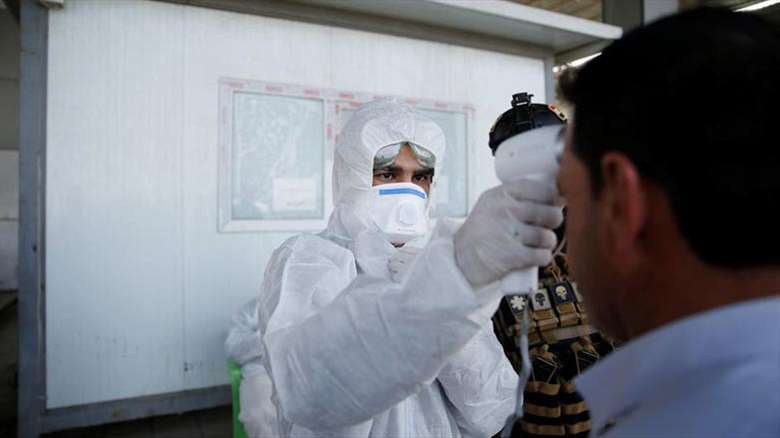COVID-19: Iraq to ease health restrictions, despite recording over 2,000 infections daily

ERBIL (Kurdistan 24) – On Friday, Iraq’s Ministry of Health and Environment, again, reported over 2,000 new cases of coronavirus infections, along with more than 90 deaths, due to the virus over the past 24 hours. The report of the latest COVID-19 statistics followed just one day after Baghdad announced it would be easing the nation-wide curfews and would allow the resumption of commercial flights.
In its daily statement, the ministry explained that health workers had conducted 17,211 tests across the country over the past 24 hours, raising the total of such tests to 762,058 since the pandemic began. Of the new tests, 2,023 were positive for the virus. The ministry also reported that 2,179 patients had recovered, while 94 people had died in the past 24 hours.
The total number of infections in Iraq has now reached 88,171. That figure includes 56,495 recoveries, 3,616 deaths, and 28,060 individuals who are still receiving treatment.
Iraqi government eases restrictions
On Thursday, Iraq’s Higher Committee for Health and Public Safety announced that it would be easing several measures which had been adopted to curb the spread of the disease. Notably, Iraq will reopen its airports, as well as several border crossings.
Flights into and out of Iraq will be allowed, beginning on July 23. That decision follows an announcement earlier this week, on Monday, from Iraq’s Civil Aviation Authority which extended a ban on commercial flights for one more week—until July 22.
The decision to suspend international passenger flights was first made on March 17. Initially, the suspension was scheduled to last for one week, as the government began to take preventative measures to counter the spread of the coronavirus. However, over the following four months, the ban was successively extended for one week periods.
The committee also announced that Iraq would reopen three border-crossings with neighboring Iran and Kuwait for trade and other commercial purposes. They include al-Mundhiriyah and al-Shaib on the border with Iran and the Safwan border crossing with Kuwait.
In addition, “malls and shopping centers are to reopen” the committee announced, as it also explained that people who go shopping in those places must do so “under strict conditions, including the implementation of preventative health and social distancing measures.”
The time of the country’s lockdown is to be reduced to the hours between 9:00 PM and 5:00 AM on most days of the week, with a “total curfew” on Thursday, Friday, and Saturday—although the total curfew will be reviewed after the Eid al-Adha holiday later this month.
The committee emphasized that despite the loosened measures, the coronavirus “remains a serious threat” to public health, and it stressed the importance of following precautionary measures, as detailed by the government.
One problem that other countries have faced as they open up, is that many people understand the relaxation of the public health measures to mean that the virus is no longer a problem and they can return to their old routines. The result is the resurgence of the virus and the need for further restrictive measures.
Editing by Laurie Mylroie
